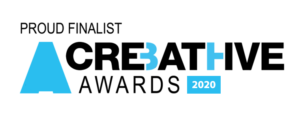He is in the enviable position of having access to large amounts of data that we lesser mortals do not usually get the opportunity to see, so his insights are well substantiated by information coming from the digital marketplace: his survey population is based on the searches and digital habits 5.9m people!
Here are some of the key findings on digital behaviour thrown up by the data:
- PC browsing habits changed a lot during lockdown: they rose dramatically during the working day (something to do with working from home with no-one looking over your shoulder, but don’t tell the boss!). They showed a corresponding decrease in mobile use.
- PPC ad clicks moved with this change, from mobiles to PCs, though by the end of May activities were nearly back to normal.
- Social media traffic to websites increased by a staggering 85%.
- There was a huge shift in activity to correspond with this, with people spending much more time on social media and brands advertising more on them.
- There’s been a huge increase amongst consumers and professionals alike to use digital techniques, rather than more traditional means of communication in relationship building, sales and purchasing, promotions etc. This is true as much in B2B as in B2C (McKinsey).
So how does this affect you, as a brand owner and/or marketer?
Clearly, the most important learning from this digital behaviour review is that the slower you were to adapt, the more you will have missed out. Those companies who still operate with an offline model of trading will have lost business to those who have developed an online model – companies that have adapted have benefitted, whilst those that have retained their old ways of doing business have suffered.
- For example, a client of ours who provide supporting software and products to Financial Advisers was very quick to provide online support to those Advisers, including coaching them in how to deal digitally with their client base (we helped them in this). As a result, they are now trading more effectively than their competitors. Speed and agility won the day!
Huge rates of digital behaviour change at the beginning of lockdown have made it into a rollercoaster ride. For example and as alluded to previously, mobile browsing fell dramatically in the first month of lockdown as people stopped commuting. Which meant your advertising had to keep pace, or you would have lost out.
So you need to be able to deal with the market volatility by:
- Keeping yourself well informed, studying the stats in as near to real-time as you can.
- Being agile, responding to trends as you see them taking shape.
- Be prepared for any eventuality: you can’t easily predict what is going to happen next, so you have to be ready for anything – and don’t be surprised: who’d have predicted a bicycling revolution as a result of lockdown!
Therefore what was true before lockdown is still true now: understand your market’s needs and craft your content around them.










Sorry, the comment form is closed at this time.